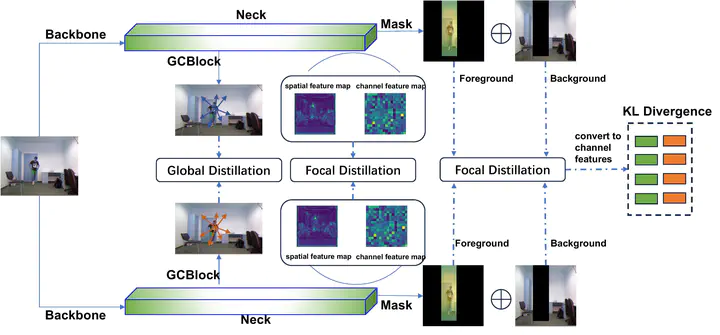
Abstract
In recent years, deep learning models have become predominant methods for computer vision tasks, but the large computation and storage requirements of many models make them challenging to deploy on devices with limited resources. Knowledge distillation (KD) is a widely used approach for model compression. However, when applied in the object detection problems, the existing KD methods either directly applies the feature map or simply separate the foreground from the background by using a binary mask, aligning the attention between the teacher and the student models. Unfortunately, these methods either completely overlook or fail to thoroughly eliminate noise, resulting in unsatisfactory model accuracy for student models. To address this issue, we propose a foreground separation distillation (FSD) method in this paper. The FSD method enables student models to distinguish between foreground and background using Gaussian heatmaps, reducing irrelevant information in the learning process. Additionally, FSD also extracts the channel feature by converting the spatial feature maps into probabilistic forms to fully utilize the knowledge in each channel of a well-trained teacher. Experimental results demonstrate that the YOLOX detector enhanced with our distillation method achieved superior performance on both the fall detection and the VOC2007 datasets. For example, YOLOX with FSD achieved 73.1% mean average precision (mAP) on the Fall Detection dataset, which is 1.6% higher than the baseline. The code of FSD is accessible via https://doi.org/10.5281/zenodo.13829676.